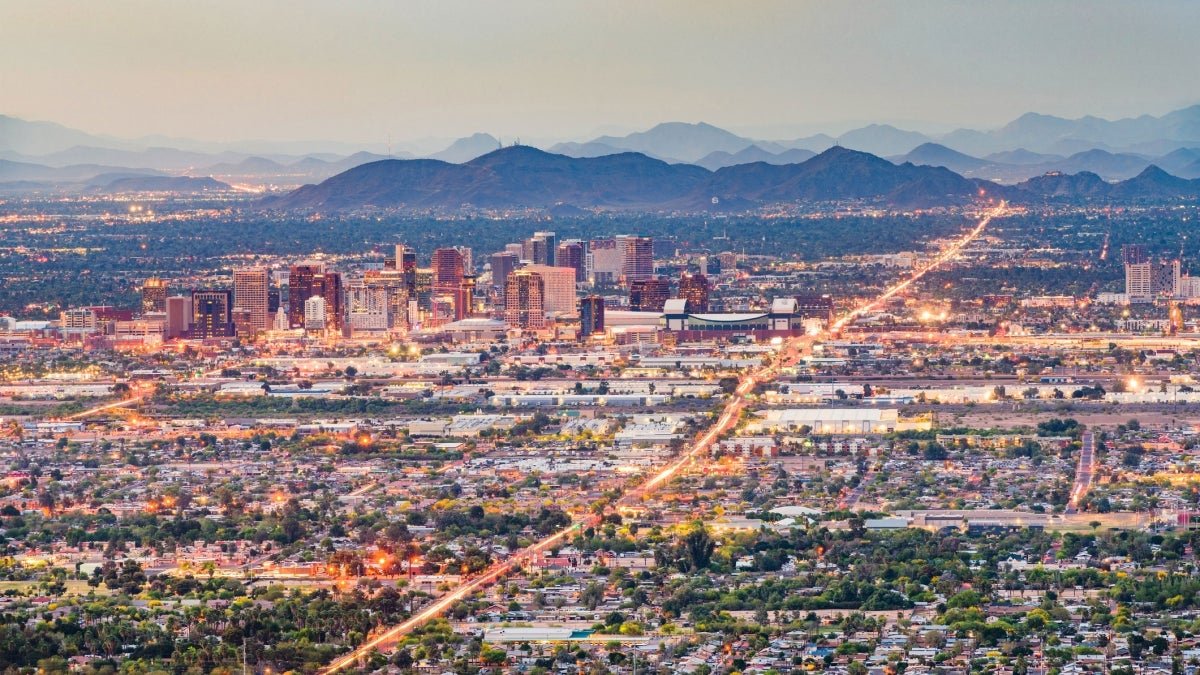Arizona State University today convened the inaugural meeting of the Council of Resilience Leaders, its latest effort to advance resilience-promoting strategies as communities in Arizona and around the world search for answers to complex issues from climate change to economic, health and social inequities.
The newly formed council comprises 14 influential and diverse leaders from the public, private, nonprofit and advocacy sectors. The group will work together to support ASU’s Knowledge Exchange for Resilience in its mission to leverage the university's intellectual resources and partners to build Maricopa County’s capacity to withstand future shocks and stresses.
“Arizona is experiencing rapid changes in the demand for health care and education, economic expansion, and social and environmental evolution, and as 2020 showed us, we can’t wait around for answers,” ASU President Michael Crow said. “Now more than ever, we need to work together as leaders to address the multifaceted challenges confronting our state and find better ways to ensure the overall well-being and prosperity of the communities we serve.”
The city of Phoenix, Maricopa Association of Governments, Salt River Project, Arizona Public Service, AARP, Greater Phoenix Leadership, Chicanos Por La Causa, Black Chamber of Arizona, Wildfire, Intertribal Council of Arizona, State of Black Arizona, Children’s Action Alliance, The Arizona Republic and the Hispanic Chamber of Commerce were among the organizations represented at today’s gathering at Mirabella at ASU in downtown Tempe.
The council is one of several resilience-building initiatives supporting the Knowledge Exchange for Resilience, which launched in 2018 with a $15 million grant from the Virginia G. Piper Charitable Trust. Other recent endeavors include the Resilience Fellows, who conduct individual and collaborative research on resilience themes, and the Recognition of Resilience, which honors local entities for their innovative and inspirational efforts to strengthen community resilience.
Additional information about the Knowledge Exchange for Resilience and the council’s membership is available at resilience.asu.edu/council-of-resilience-leaders.
ASU’s continued work to strengthen local resilience is another example of its ongoing, institutional commitment to take fundamental responsibility for the economic, social, cultural and overall health of the communities it serves.
Top photo by Sean Pavone/iStock
More Environment and sustainability

Public education project brings new water recycling process to life
A new virtual reality project developed by an interdisciplinary team at Arizona State University has earned the 2025 WateReuse Award for Excellence in Outreach and Education. The national …

ASU team creates decision-making framework to improve conservation efficiency
Conserving the world’s ecosystems is a hard job — especially in times of climate change, large-scale landscape destruction and the sixth mass extinction. The job’s not made any easier by the fact…

Mapping the way to harvesting water from air
Earth’s atmosphere contains about 13 trillion tons of water.That’s a lot of water to draw upon to help people who are contending with drought, overtaxed rivers and shrinking aquifers.In fact,…


